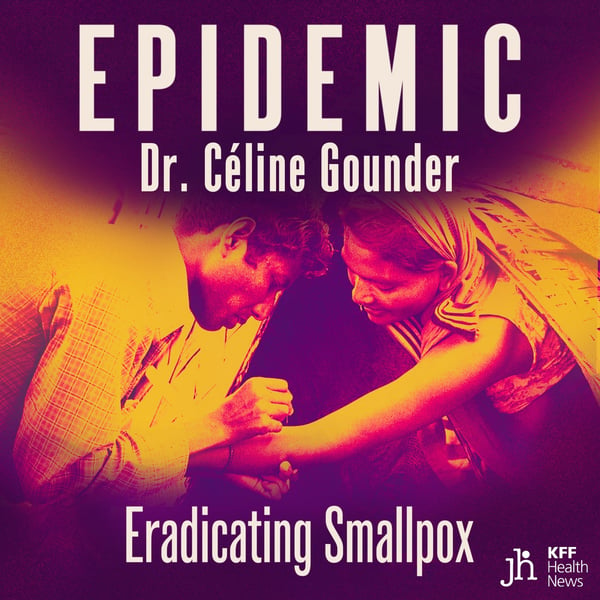S1E43 / What Sports Can Teach Us About Mass Testing / Michael Mina, Rohan Nadkarni, Stephanie Apstein
EPIDEMIC with Dr. Celine Gounder
KFF Health News and Just Human Productions
4.6 • 1K Ratings
🗓️ 18 September 2020
⏱️ 21 minutes
🧾️ Download transcript
Summary
Transcript
Click on a timestamp to play from that location
| 0:00.0 | If you're willing to accept a certain number of infections, you can do it without a bubble. |
| 0:10.0 | And the question is just at what cost and how many infections are you willing to accept |
| 0:14.0 | and I think baseball has has given its answer that number is more than zero and |
| 0:19.7 | so they're pressing on. Welcome back to Epidemic, a podcast about the social and public health impacts of the |
| 0:37.1 | coronavirus. I'm Dr. Saline Gounder. The Testing has been one of the biggest challenges of this pandemic. This spring, |
| 1:01.2 | reagents, swabs, and other materials were in such short supply that people were discouraged |
| 1:07.4 | from getting tested. |
| 1:09.2 | And if people did get tested, backlogs left many waiting days, even weeks for results. |
| 1:16.0 | President Trump has been one of the biggest critics of testing. |
| 1:19.5 | He falsely claimed that testing was to blame for the soaring number of coronavirus cases across the country. |
| 1:26.3 | At a rally this summer, he even called for less testing. |
| 1:29.2 | When you do testing to that extent, you're going to find more people, you're going to find more cases. |
| 1:35.2 | So I said to my people, slow the testing down, please. |
| 1:40.4 | And at the end of August, the CDC bent to his will. |
| 1:43.0 | The nation's top public health authority said people who were exposed to someone |
| 1:48.0 | with the coronavirus and did not show symptoms need not get tested. But anyone can spray coronavirus even if they don't show |
| 1:56.9 | symptoms. So the only way you'd notice stay home and protect others is |
| 2:01.2 | through testing. That's why infectious disease epidemiologists |
| 2:05.0 | like Dr Michael Minna are looking for ways to get people tested every single day. |
| 2:11.0 | This would just become part of our daily routine. |
| 2:15.0 | You would brush your teeth, you put in your contact lenses, and you'd take a coronavirus |
| 2:19.4 | a transmission indicating test. |
... |
Please login to see the full transcript.
Disclaimer: The podcast and artwork embedded on this page are from KFF Health News and Just Human Productions, and are the property of its owner and not affiliated with or endorsed by Tapesearch.
Generated transcripts are the property of KFF Health News and Just Human Productions and are distributed freely under the Fair Use doctrine. Transcripts generated by Tapesearch are not guaranteed to be accurate.
Copyright © Tapesearch 2025.

